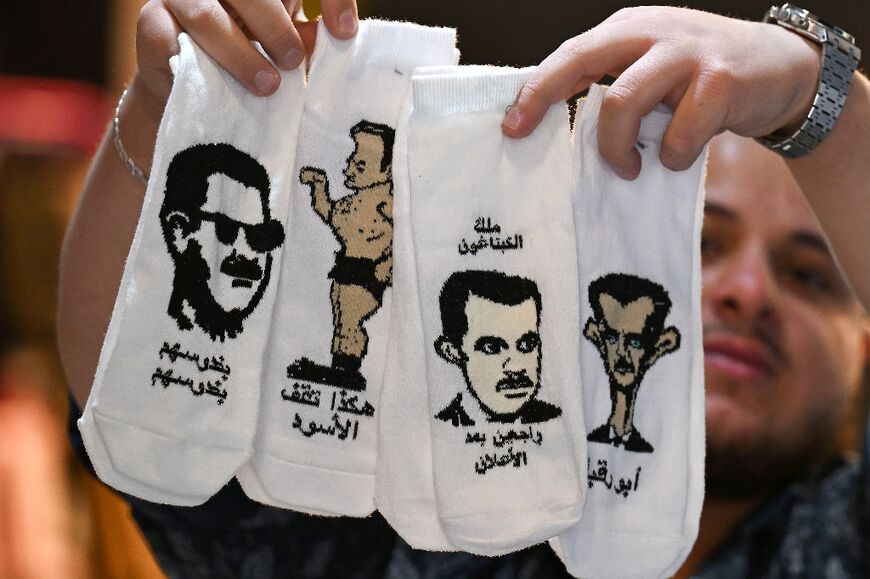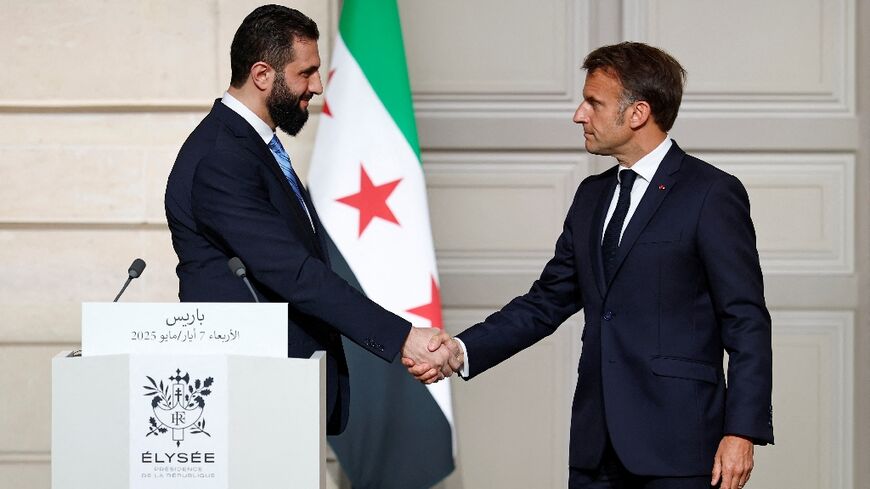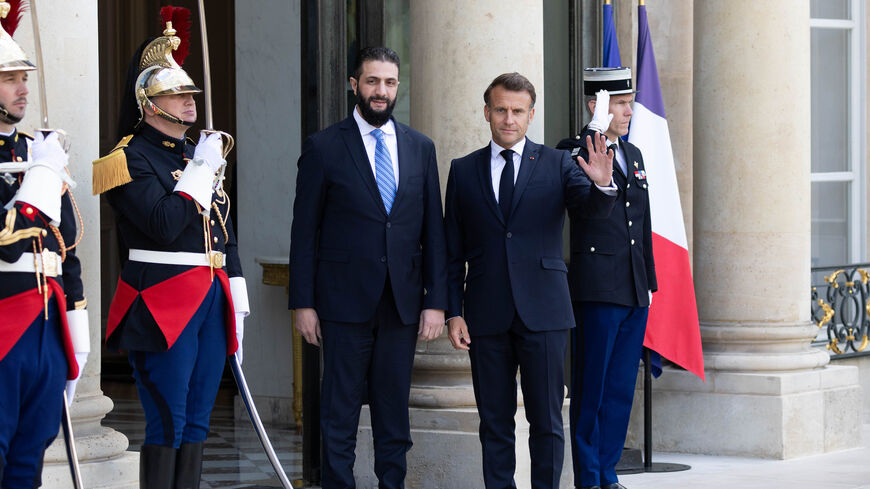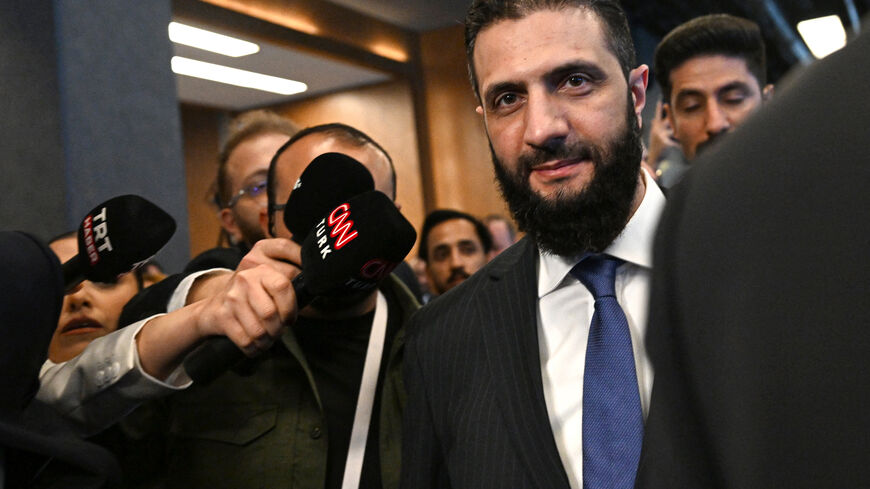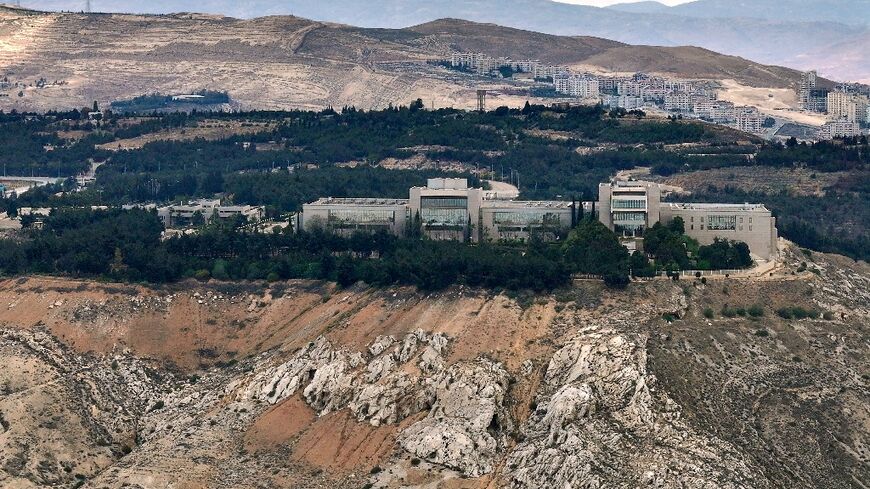Macron to host Syrian leader's first European visit
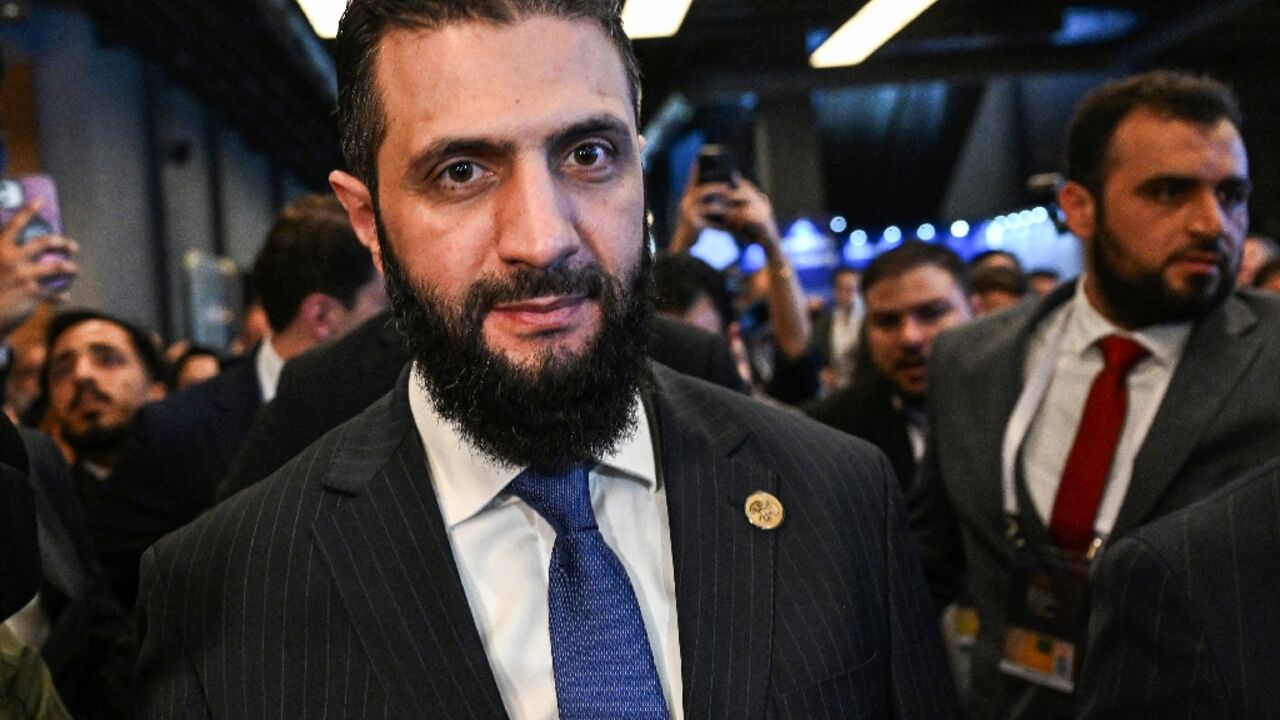
Syrian President Ahmed al-Sharaa on Wednesday meets France's Emmanuel Macron in Paris on his first visit to Europe since taking power after the fall of longtime Syrian ruler Bashar al-Assad.
The visit comes with Syria's new authorities, who have roots in the Al-Qaeda jihadist network, under increasing pressure from Europe to show their seriousness on protecting human rights as Damascus seeks the full lifting of Assad-era sanctions.
"This meeting is part of France's historic commitment to the Syrian people who aspire to peace and democracy," the Elysee Palace said on Tuesday.
Macron will "reiterate France's support for the construction of a new Syria, a free, stable, sovereign Syria that respects all components of Syrian society," the presidency said.
Macron will also emphasise "his demands on the Syrian government, primarily the stabilisation of the region, including Lebanon, and the fight against terrorism," it said.
Sharaa was the head of the Islamist group Hayat Tahrir al-Sham (HTS) which spearheaded Assad's overthrow after 14 years of civil war and formerly had links to Al-Qaeda.
He is still subject to a UN travel ban and France most likely had to request an exemption from the United Nations, as was the case for his recent trips to Turkey and Saudi Arabia, according to a source familiar with the matter.
EU spokesperson Anouar El Anouni said, referring to the Syrian leader by his nom de guerre Abu Mohammed al-Jawlani, that exemptions can be granted in certain cases if UN officials determine "that the entry or transit is justified".
Macron is due to welcome al-Sharaa to the Elysee Palace at 1515 GMT followed by a joint news conference.
- Humanitarian crisis -
France, a former colonial-era ruler of Syria, is eyeing an opportunity to increase its influence in the country after years of Russian presence, with French companies also seeking business contracts.
Last week, French logistics giant CMA CGM signed a 30-year contract to develop and operate the port of Latakia.
Macron had first invited Syria's new leader to visit France in February.
In March, he repeated the invitation but made it conditional on the formation of an inclusive Syrian government representing "all components of civil society", describing his initial negotiations with the interim leaders as "positive".
Mehad, a French NGO which has operated in Syria since 2011, warned of the worsening humanitarian crisis in the country and called for "a strong response" from France.
"Emmanuel Macron's strong commitment must now be translated into action, not only by maintaining the budget allocated to humanitarian aid in Syria, but also by disbursing it quickly," said Mehad director Mego Terzian.
"Otherwise we are heading for a humanitarian and health disaster in the country."
- 'Shock and dismay' -
Syria's new Islamist authorities have vowed inclusive rule in the multi-confessional, multi-ethnic country.
But sectarian clashes in March in which more than 1,700 people were killed, mostly from Assad's Alawite minority, sparked condemnation.
More recent clashes involving fighters from the Druze community, as well as reports of abuses from NGOs, have also raised doubts about the interim government's ability to control extremists in its ranks.
Adding to pressure on the new Syrian government, Israel has also launched hundreds of strikes on the country since Assad's overthrow, including one near the presidential palace in Damascus on Friday.
The interim government described the strike as a "dangerous escalation", while the United Nations urged Israel to halt its attacks on Syria "at once".
The French far right criticised the upcoming talks.
Far-right leader Marine Le Pen accused Macron of hosting talks with "a jihadist" who has been involved with the Islamic State group and Al-Qaeda, adding such a meeting would be "provocative and irresponsible".
"Shock and dismay," Le Pen said on X.
Foreign Minister Jean-Noel Barrot, who met with the Syrian leader on a visit to Damascus in January, defended the talks.
Not engaging with the leaders of Syria and Lebanon would amount to "rolling out the red carpet for Daesh," Barrot told broadcaster RTL, referring to the Islamic State jihadists.
